Genres in any type of media can be finicky, but video game genres are particularly prone to mockery. It’s easy to make fun of portmanteaus like Soulsborne and Metroidvania, and whatever Hideo Kojima’s “strand” genre is. And while Metroid Prime’s designation as a “first-person adventure” upon its 2002 release might have invited some ridicule at the time, Nintendo and Retro Studios silenced the naysayers with the final product itself.
Metroid Prime Remastered came out on the Nintendo Switch over two decades later, and countless words have been published about the excellence of the original title since then. It’s hard to cover anything that hasn’t been said about the original Metroid Prime, and I’m sure any compliments I’m about to give it will resemble marketing speak from the time of its GameCube debut. Metroid Prime has some amazing staying power — and two weeks deep into it, I’m starting to wonder if any game since then (besides its sequels, of course) have provided a similar experience.
Under the visor
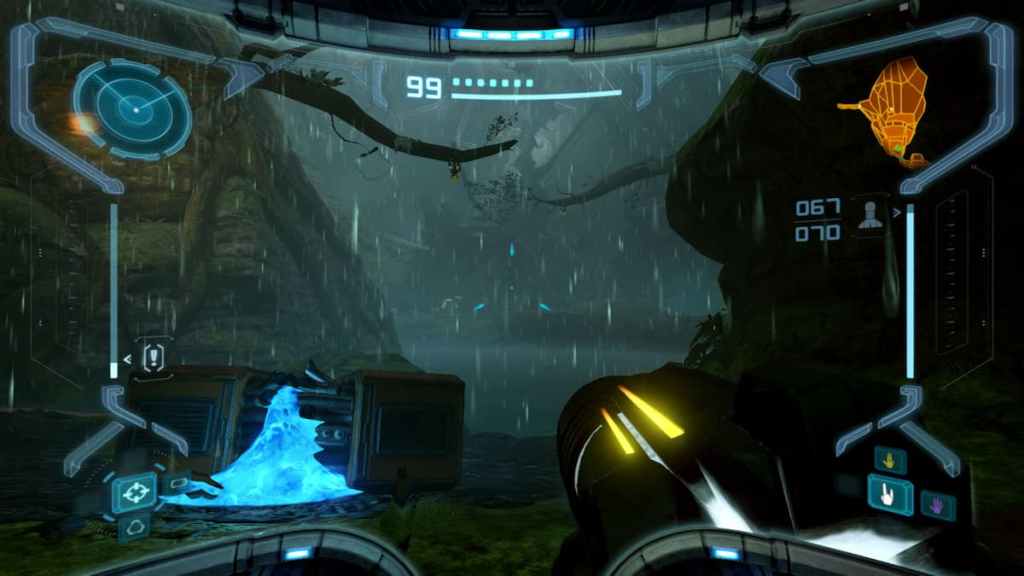
To potentially regurgitate what could have been pulled straight out of a 2002 advertisement, Metroid Prime truly makes you feel like Samus Aran in the Power Suit. I’m a sucker for diegetic HUD elements in the video game to provide a bit of immersion, and how Retro Studios achieved such a detailed and unique first-person POV is still astounding to this day. From the helmet’s digital interface, to how outside elements affect the player’s vision, the visor adds to the experience without being distracting — no non-sensical blood splatter effects here.
I didn’t know how much I needed Metroid Prime to get a visual overhaul, but the updated and remade graphical assets and effects in Metroid Prime Remastered is really a sight to see. Similar to how Retro pushed the GameCube and Wii to their limits, Prime Remastered comes off as one of the best-looking games in recent memory, even with the Switch’s underpowered hardware. The comment you’ve likely seen a lot is how Remastered looks exactly how we might have remembered the original Prime, but beyond its prime (pardon the pun) — side-by-side comparisons are remarkable.
Related: All differences between Metroid Prime Remastered and the original game
There aren’t too many games where I stop to admire the rain effects, as drops fall onto the visor. Electrical attacks will interfere with your visor, causing static, but also subconsciously giving you a cue on that enemy’s position. And as was a talking point all those years ago, if the lighting is right after firing a beam or missile, you get a quick glimpse of Samus’s face through reflection. These tricks in Retro’s bag still hold up, and it’s something I wish other games today would copy. As much as I love diegetic elements in games like Dead Space, where health is displayed through your suit, for example, modern games haven’t played enough with the first-person perspective.
Not action or horror, but some secret third thing
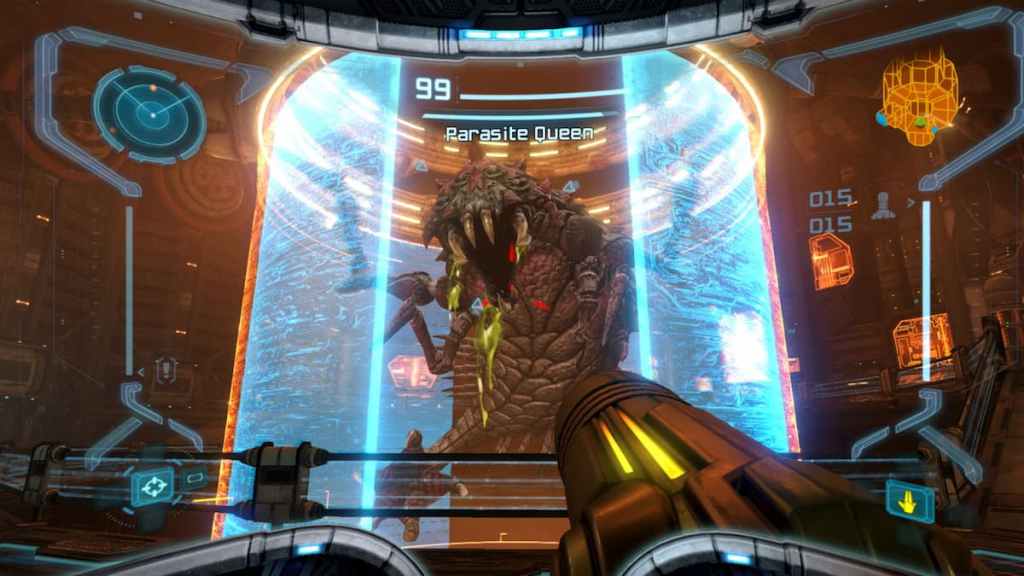
The original Metroid on the NES was seen internally as a hybrid between the platforming of Super Mario and the equipment-based adventuring of The Legend of Zelda. Seeing how both landmark franchises made such radical jumps going into the third dimension, Metroid had to figure out its own distinct path with Prime. Concerns that Metroid would turn into a shoot-em-up instead of an atmospheric exploration-based game were quickly alleviated, and Metroid Prime turned the phrase “first-person adventure” into something real.
This was still very much a game about hitting dead ends, finding power-ups, opening doors, and getting lost, but triumphantly progressing as you solve problems — all with the added immersion of a first-person perspective. Shooting was necessary to progress, but Prime focused less on precision and reflexes; combat encounters were more so to provide you with new ways to navigate the space. Mechanically, Metroid Prime was far from a boomer shooter or a Halo clone.
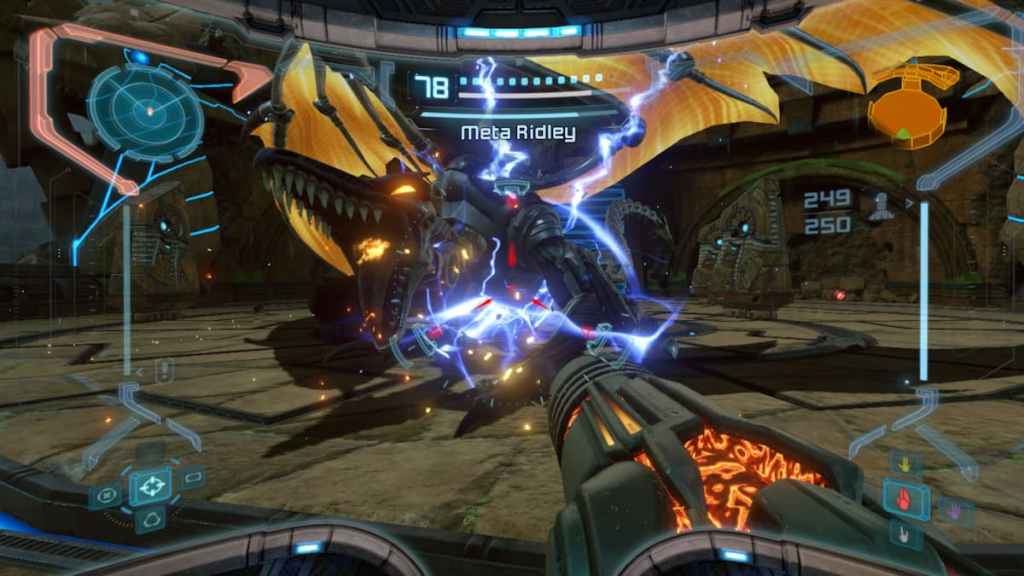
Thematically, the genre of Metroid Prime is hard to pin down. I first think of the Alien film series, which has a very clear influence on the Metroid series as a whole (the name “Ridley” really doesn’t make it a secret). You have Ridley Scott’s Alien, more of a haunted house horror-slasher, and James Cameron’s Aliens, a high-octane action blockbuster. Metroid, and Prime in particular, certainly has shades of both, but it never goes too far in one end of the spectrum. There are moments of intense action, but this isn’t the main driving force of Prime. And there is a prevalent feeling of dread and uncertainty as you explore Tallon IV, but no instances of extreme violence, gore, or jump scares.
It’s all enhanced by an addicting synth soundtrack that didn’t need any sort of upgrade, giving Prime an eerie, ethereal, and captivating feel. While I’m unknowledgeable of any technical enhancements made in Remastered, the soundscape still very much holds up in 2023. The music sounds somehow both artificial and organic, creating a sort of uncanny valley of sounds that resemble real instruments or vocals. There’s something grandiose and oppressive about many of the boss music tracks in Prime, adding gravity to these encounters no matter how difficult — the first boss, Parasite Queen, is by far the easiest, yet it comes with one of the loudest and chilling tracks in the game.
Amidst all the genre classification sludge, Metroid Prime Remastered is a first-person Metroidvania adventure game with shooting and slight elements of blockbuster action and horror — but I’d rather just say that Metroid Prime is just Metroid Prime. It’s a blend of elements in games and media that I love, borrowing from influences; instead of coming across as non-commital, Prime creates something from these elements that is truly special.
The cost of Metroid Prime, and what’s next
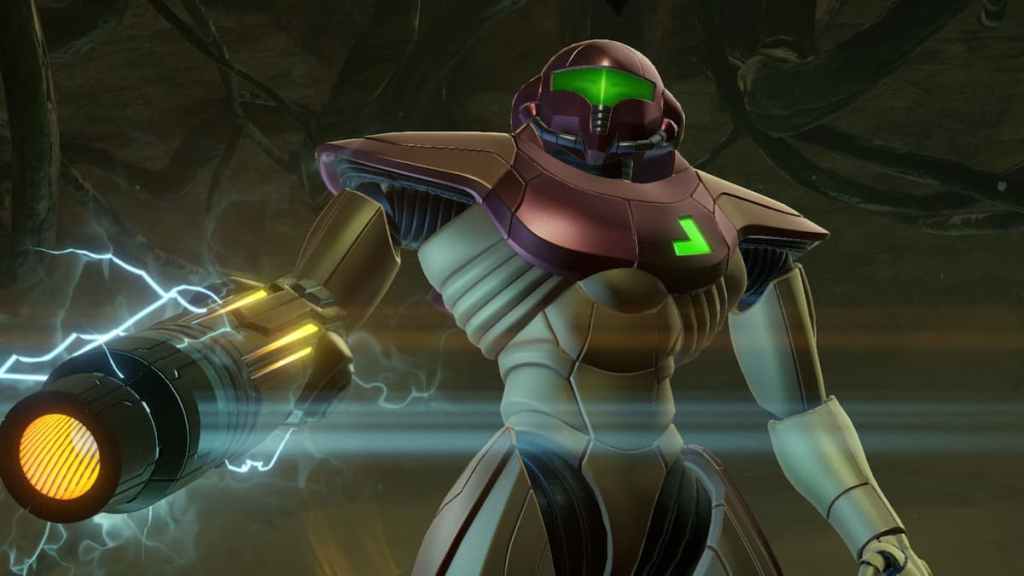
Looking at the history of Metroid Prime’s development, it’s easy to believe that Prime is a miracle — but there really isn’t such a thing in the games industry without major crunch. It’s well-documented that the development of Prime was a period of great stress for the then-freshman Retro Studios, leading to 100-hour work weeks and burnout. As an extra insult to the original developers, Metroid Prime Remastered fails to individually name all of them in the credits; procedure otherwise, that’s hard for any developer who lost sleep while making this game.
The sudden announcement and drop of Metroid Prime Remastered was a pleasant surprise for Metroid devotees such as myself, but it also reminded us of the bizarre and mysterious nature of Retro Studios as an entity. Video game development is already such an opaque process, but Nintendo and Retro in particular make national intelligence agencies look more transparent in the process. Having not shipped a product since Donkey Kong Country: Tropical Freeze’s Switch re-release in 2018, Retro has been publicly silent since the announcement that it would take over Metroid Prime 4 development.
It’s fair to speculate that the coming of Metroid Prime Remastered, missing the original game’s 10-year anniversary by mere months, is a signal that there is movement on Metroid Prime 4 — and of course, people are asking if 2 and 3 are headed to Switch soon. As much as I’ve been loving Metroid Prime Remastered, recalling all of my Metroid memories and viewing this world with renewed eyes, my excitement is also countered with a bit of apprehension. Yes, I want to see Primes 2 and 3 get the same treatment, and yes, I hope Retro has turned it around with Prime 4, even though the makeup of the studio is vastly different from what it was two decades ago — but what kind of conditions are they happening under?
Metroid Prime Remastered is a salient reminder of how powerful Metroid Prime was when it was first released, and how long that power has lasted. At the same time, it’s also a reminder of how long and how much the development of a major game can take out of someone.

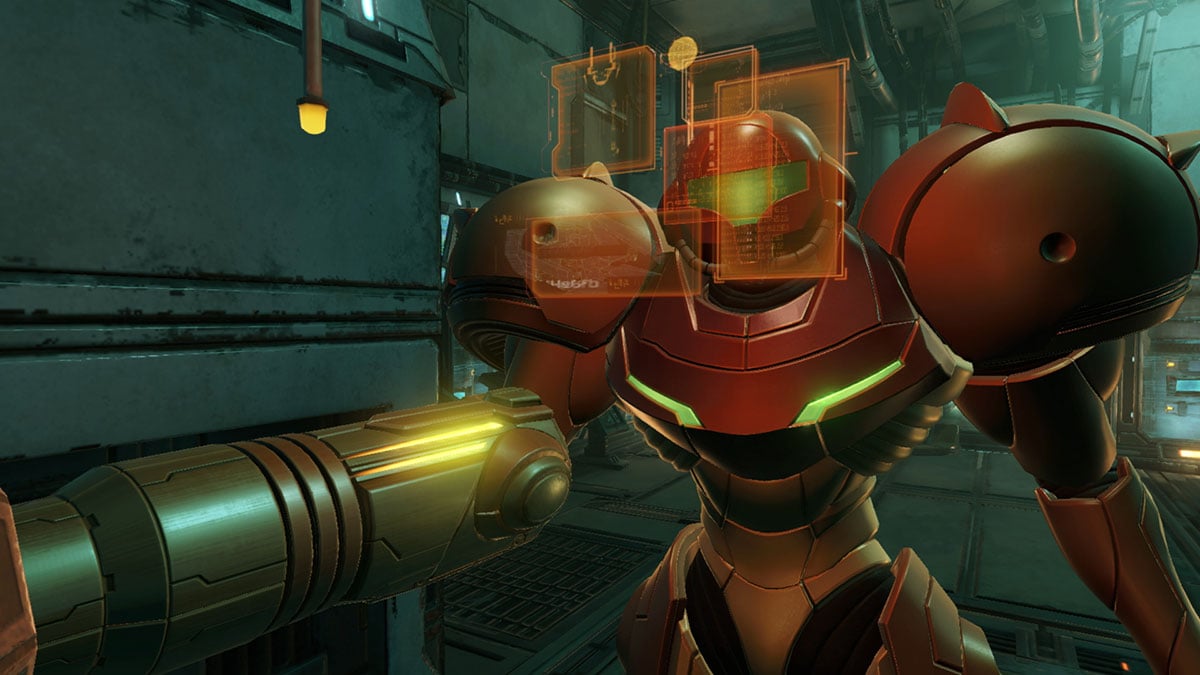
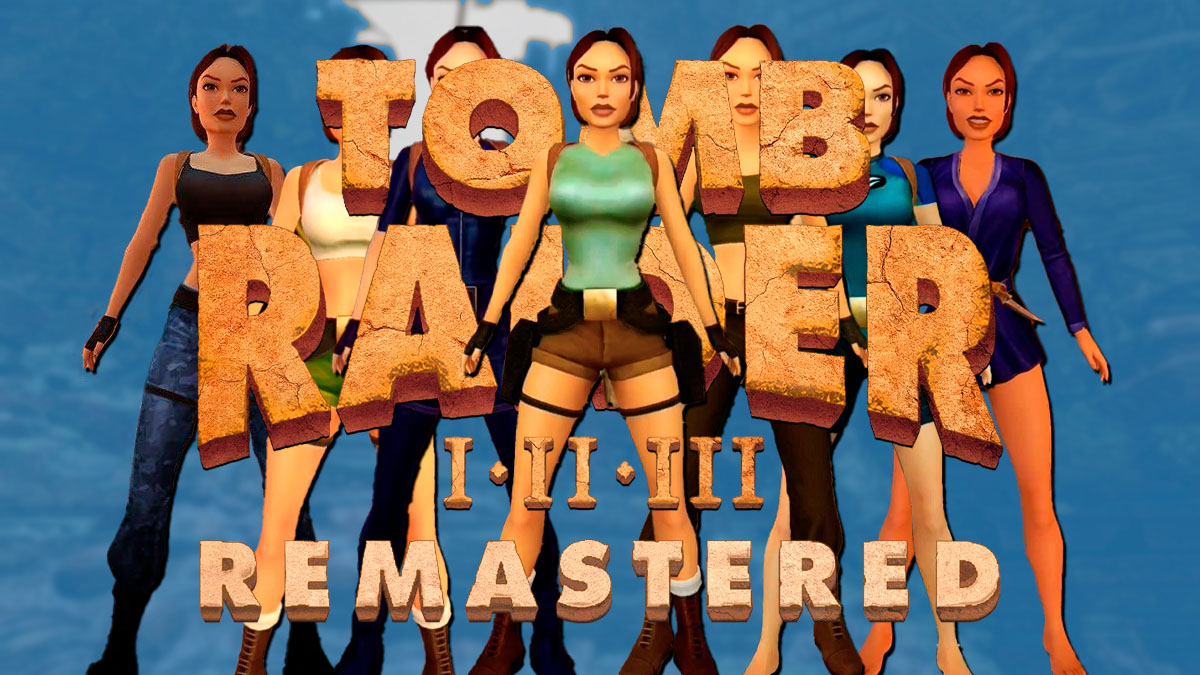
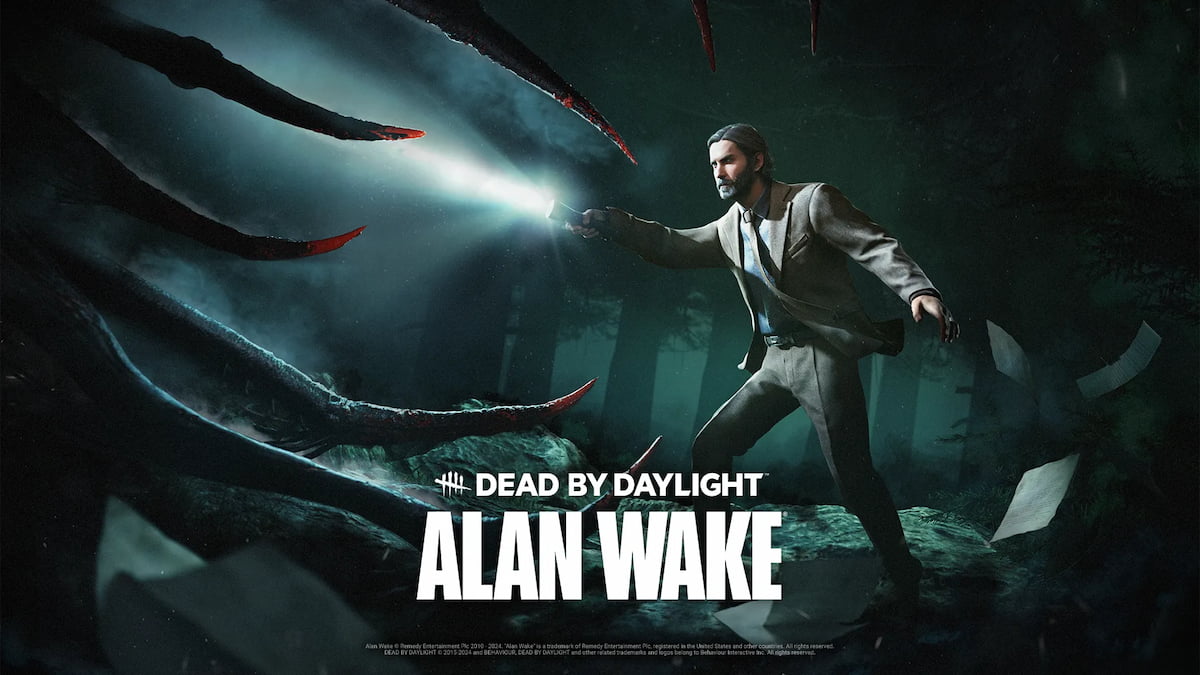
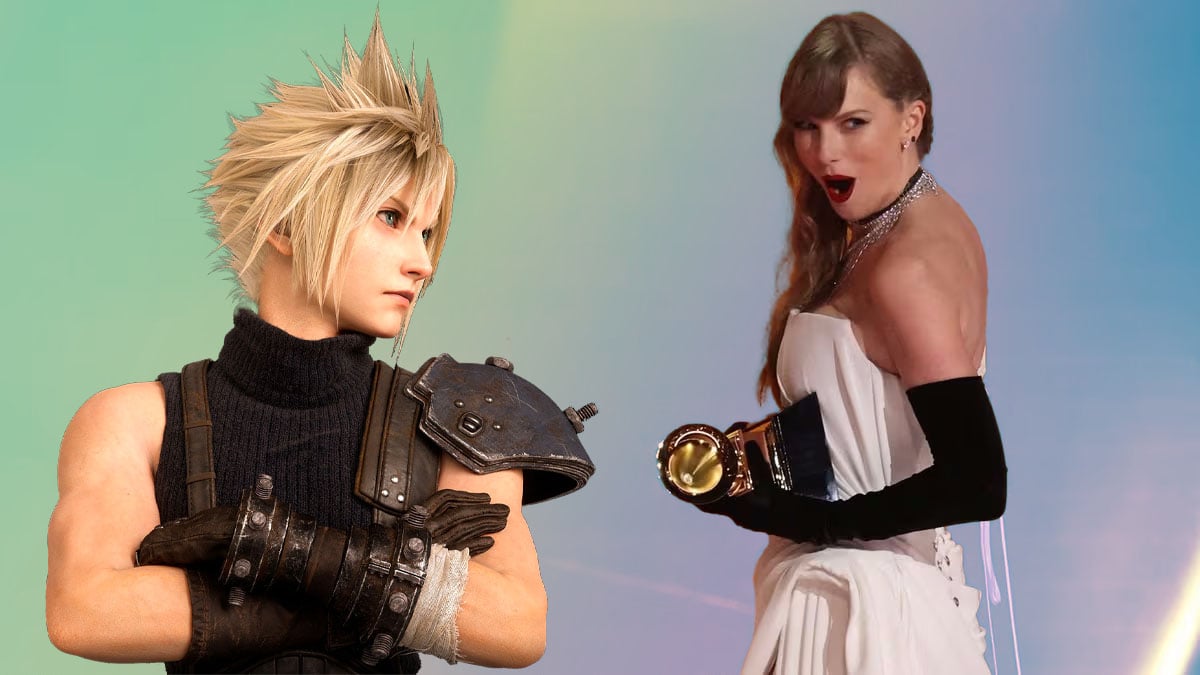

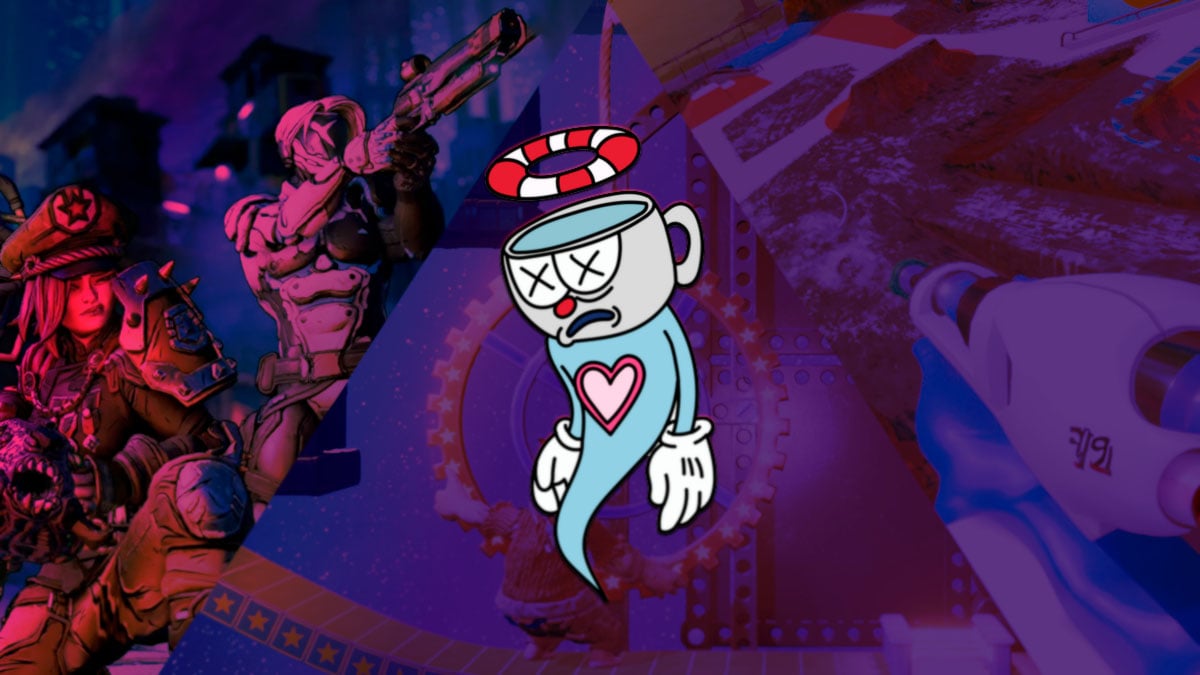
Published: Feb 22, 2023 09:22 am